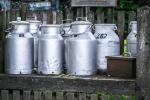H2020 RECONECT Project: RECONECT - Regeneration of Ecosystems with Nature-based Solutions for the REDUCTION of Hydrometeorological Risks
- Type Project
- Status Signed
- Execution 2018 -2024
- Assigned Budget 13.520.689,63 €
- Scope Europeo
- Main source of financing Horizon 2020
- Project website Proyecto RECONECT
With a focus on developing the holistic ecosystem-based framework in RECONECT, WP1 analyzed existing frameworks and identified a preliminary list of gaps. The scientific state of the art, implementation practices, and policy landscape were reviewed, and methods for the social innovation approach were described. In addition, the RECONECT Lead User Methodological Approach was developed.
In WP2, a baseline assessment and scope of work of the Demonstrators were completed, and the necessary preparatory actions for co-implementation of NBS in the A Demonstrators were undertaken. Stakeholder mapping activities were carried out, and initial steps were taken to identify potential social, cultural, and political barriers at the NBS demonstration sites. The twinning potential between the NBS cases was assessed, and the initial structure of the Demonstrators' twinning process was established.
The RECONECT monitoring and evaluation approach was developed in WP3. A key achievement during this period was the establishment of the TeleControlNet (TCN) ICT platform. TCN is being connected to the monitoring team at the NBS sites. Furthermore, the implementation of innovative monitoring and evaluation methods has been promoted and discussed with the demonstrators. In connection with the validation activities, the current perceptions of key stakeholders regarding NBS have been surveyed and analyzed, and the main barriers have been identified.
WP4 is implementing RECONECT's Social Innovation Approach in all its activities. A comprehensive stakeholder mapping of collaborators was conducted. WP4 initiated a supply-and-demand analysis of knowledge and capacity needs at the collaboration sites, which will be used to connect and advance twinning activities between collaborators and demonstrators.
WP5 has initiated a market exploration to develop RECONECT spin-offs based on the partners and lessons learned from the project. In this phase, the market exploration considered the study of environmental DNA, wetlands, and flooding tools for developing NBS implementation. Another market exploration was initiated for the aquatic drone concept and the Water Detective app (a crowdsourcing application).
WP6 launched the RECONECT website (www.reconect.eu). Communication and dissemination activities have improved awareness of NBS among various stakeholders and the target audience. This required the development of a visual identity guide for the project. Work Package 6 (WP6) also facilitated connection with other EU projects (UNALAB, OPERANDUM, PHUSICOS) through a series of joint activities. During WP6, activities were carried out to foster innovation in hydrometeorological risk mitigation practices.
WP7 is responsible for project management. During this period, an amendment to the Grant Agreement was finalized. WP7 continuously facilitates collaboration and communication between the various RECONECT partners to ensure, among other things, the progress of the various tasks, the scientific relevance of the project, financial viability, and gender equality, in accordance with EC principles and regulations.
Regenerating Ecosystems with Nature-based Solutions for Hydrometeorological Risk Reduction (RECONECT) is a five-year project bringing together 35 leading international partners. RECONECT's main objective is to contribute to European and international reference frameworks on nature-based solutions (NBS) by demonstrating, benchmarking, and scaling up large-scale NBS, as well as by fostering a new spatial planning culture that links hydrometeorological risk reduction (floods, storm surges, landslides, and droughts) with local and regional development objectives in a sustainable manner. RECONECT embraces the holistic ecosystem-based concept.
It is based on the premise that our capacity to adapt sustainably to extreme hydrometeorological events depends on the non-linear coevolutionary interaction between changing social, economic, and cultural needs and technological advances, on the one hand, and natural processes, on the other. To effectively contribute to the development of NBS frameworks and generate greater impact in Europe and internationally, RECONECT relies on a network of demonstration sites (Demonstrators A and B) and collaboration sites (Collaborators). The idea is that the Demonstrators will serve as living NBS laboratories for monitoring and evaluation in relation to hydrometeorological risk reduction, covering different climatic and local contexts. The knowledge and experiences generated through the demonstrated NBS will form a basis for European and international Collaborators to learn and apply some of these new concepts in their own cases.
Furthermore, RECONECT seeks to produce the frameworks and tools needed to support more effective planning, financing, modeling, monitoring, evaluation, design, operation, and maintenance of NBS projects. RECONECT's methodological framework follows a roadmap containing three groups of interrelated components (i.e., work packages, deliverables, and impacts), with the first two groups designed to ensure the project achieves the desired immediate and long-term impacts (i.e., the third group). To achieve the desired impacts, project activities have been structured into seven work packages (WPs), each addressing different aspects of the NBS scale-up strategy: from providing the necessary scientific, policy, and practical basis for NBS implementation and transfer (WP1), through fieldwork in demonstration sites (WP2), followed by monitoring and evaluation of demonstrated NBS measures (WP3), overcoming barriers, scaling up and synergies with collaborators (WP4), consolidating the evidence base, exploitation, and standardization (WP5), to communication and dissemination (WP6), and project management and coordination (WP7), all delivering a particular set of outcomes. In addition to the NBS co-creation, demonstration, and scaling-up activities, RECONECT will also develop educational products and organize public events to share acquired knowledge and disseminate project results.
RECONECT aims to contribute to the European reference framework on nature-based solutions (NBS) by demonstrating, benchmarking, and improving large-scale NBS and stimulating a new culture for land-use planning that links risk reduction with local and regional development objectives in a sustainable manner. To this end, RECONECT draws on a network of carefully selected demonstrators and collaborators covering a variety of local conditions, geographical features, governance structures, and social/cultural environments to successfully improve NBS across Europe and internationally. The RECONECT consortium is a transdisciplinary partnership between researchers, industrial partners (SMEs and large consultancies), and responsible agencies at local and basin/regional levels dedicated to achieving the desired project outcomes.
RECONECT addresses innovation, going beyond the state of the art in terms of NBS co-creation processes and the frameworks, models, and tools needed to support them. RECONECT's Social Innovation Approach has been developed to guide the exploration, production, and implementation of innovative solutions for hydrometeorological risk reduction, while seeking stakeholder engagement throughout the NBS co-creation process.
The holistic ecosystem-based framework being developed allows for the study of interactions between hydrometeorological events and sociotechnical activities, and for the assessment of the effects of institutional policies, cultural contexts, and land management practices on the effectiveness of NBS under different circumstances and conditions. It also allows for the study of interdependencies between sociotechnical activities to analyze the drivers of NBS demand and supply, as well as business models for their replication and scaling. Finally, the co-assessment framework developed in RECONECT enables the comprehensive co-monitoring and evaluation of NBS in the face of water, nature, and people challenges. Innovative technologies and tools, such as the RECONECT ICT Platform, are being developed to support co-creation processes.
- STICHTING IHE DELFT INSTITUTE FOR WATER EDUCATION (IHE DELFT)







